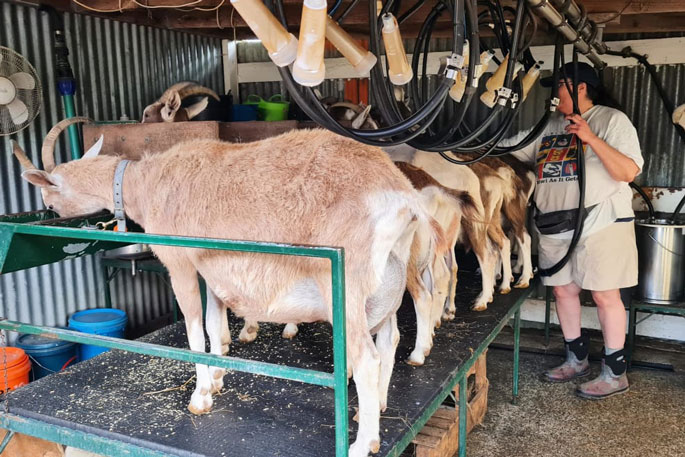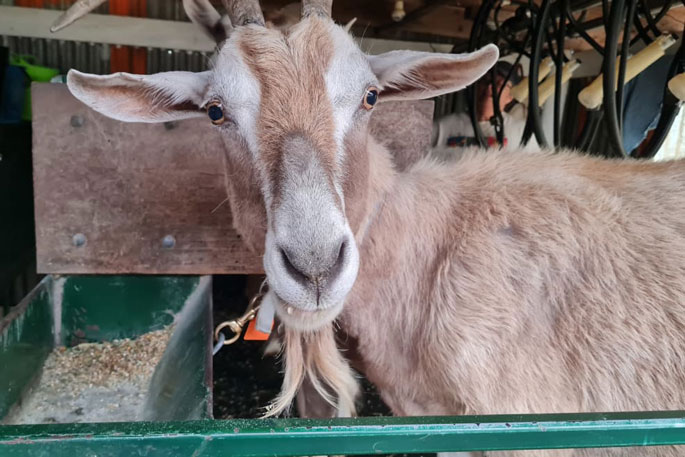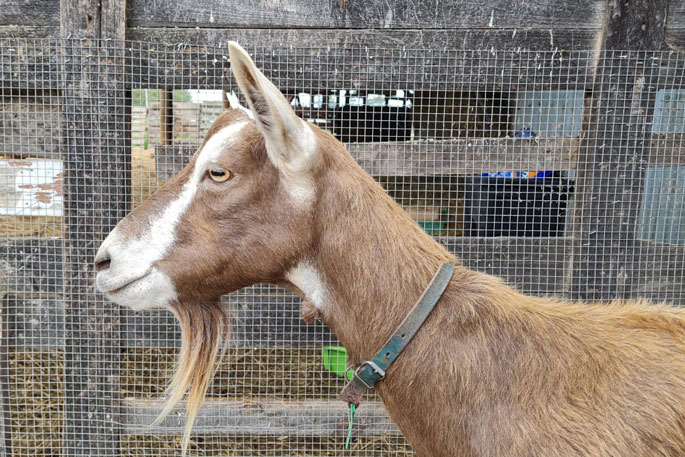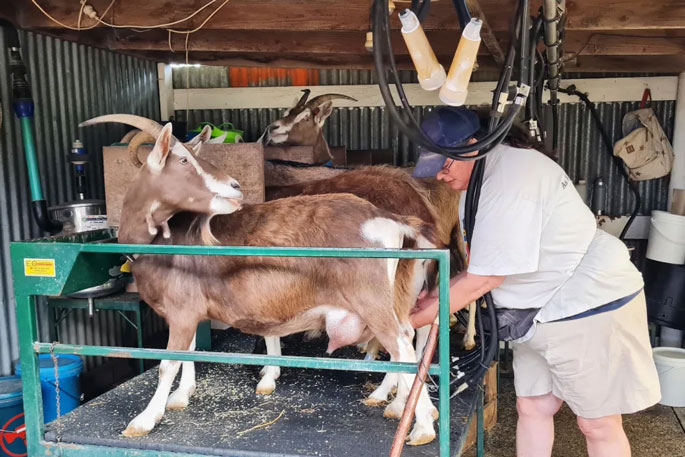Thanks to goat milk, Andrea Gauland's son's eczema cleared up within two weeks.
"He was a walking rash at seven years old because he drank a lot of milk and it was mostly cow milk," she said.
Goat milk has been used for centuries to soothe and treat eczema-prone skin. The milk by nature contains fewer allergens (components that trigger an allergic reaction) than cow's milk, hence it may reduce eczema in children that are allergic to milk.
This was the excuse she needed to start farming dairy goats 25 years ago and she's still loving the "whey of life".
Under her Little Farm Goat Dairy brand, Gauland makes over 20 varieties of small batch goat's cheese and yoghurt. Most of it is sold in farmers' markets and to local restaurants.
Every morning the gentle chug, chug chug of Gauland's 70-year-old milking machine lures her bright-eyed goats into the farmyard for milking.
The Oxford farm is home to 75 adults and 65 kids. Of the 28 does currently being milked, the majority are Toggenburgs, a Swiss breed of dairy goat.
Most are what Gauland calls 'milk-through goats'. They're on their third or fourth year of being milked straight through, without kidding. This enables them to milk year-round.
On the milking stand, Gauland can recognise all the milking girls by their udders.
 Andrea can milk up to six goats at a time Photo: Cosmo Kentish-Barnes
Andrea can milk up to six goats at a time Photo: Cosmo Kentish-Barnes
She talks gently to Bella, Tourmaline, Yahara, Birdie, Zephyr, Zali, Yodel, Vanilla and Tilly, while putting the cups on.
She said they all have very different personalities and interact differently.
In the first milking stall is Bella. She was a rescue goat that had been abused. Gauland scratches her back.
"If there's anyone else on the milking stand, when she comes in, she will turn around and literally stamp her feet and look at me and say, get them to move!"
 Bella enjoys a tasty muesli mix while she's being milked Photo: Cosmo Kentish-Barnes
Bella enjoys a tasty muesli mix while she's being milked Photo: Cosmo Kentish-Barnes
The goats produce about two litres of milk a day. Thirty litres goes towards the daily cheese-making process.
"We do the whole process here because it preserves the quality of the milk. It's only traveling from the barn to my cheese kitchen."
"I go in and have lunch and go out and make cheese with that day's milk," the self-taught artisan said.
 A fine looking doe posing for Cosmo. Photo: Cosmo Kentish-Barnes
A fine looking doe posing for Cosmo. Photo: Cosmo Kentish-Barnes
She makes French-style cheeses, a Middle Eastern yoghurt cheese called Labneh and plain yoghurt.
"The chevre is the traditional soft curd cheese and the mould-ripened cheese, like a brie or a camembert, has the crust on the outside and ripens from the outside in."
The lead-up to Christmas is the busiest time of the year, so more goats are usually milked to meet the demand.
"Everybody tends to quiet down after that, and then as soon as they quiet down, we start with having to make more cheese because of the holidays!" she said.
So which of Gauland's cheeses is her favourite?
"A mould-ripened cheese called Ellie. It's very, very creamy, very, very dense, and has kind of a citrusy finish. Yeah, it starts out sort of earthy and then has a citrusy aftertaste to it."
You can also taste some of her cheeses. Every Sunday afternoon Gauland opens the farm up for people to look at the goats and enjoy some samples.



0 comments
Leave a Comment
You must be logged in to make a comment.